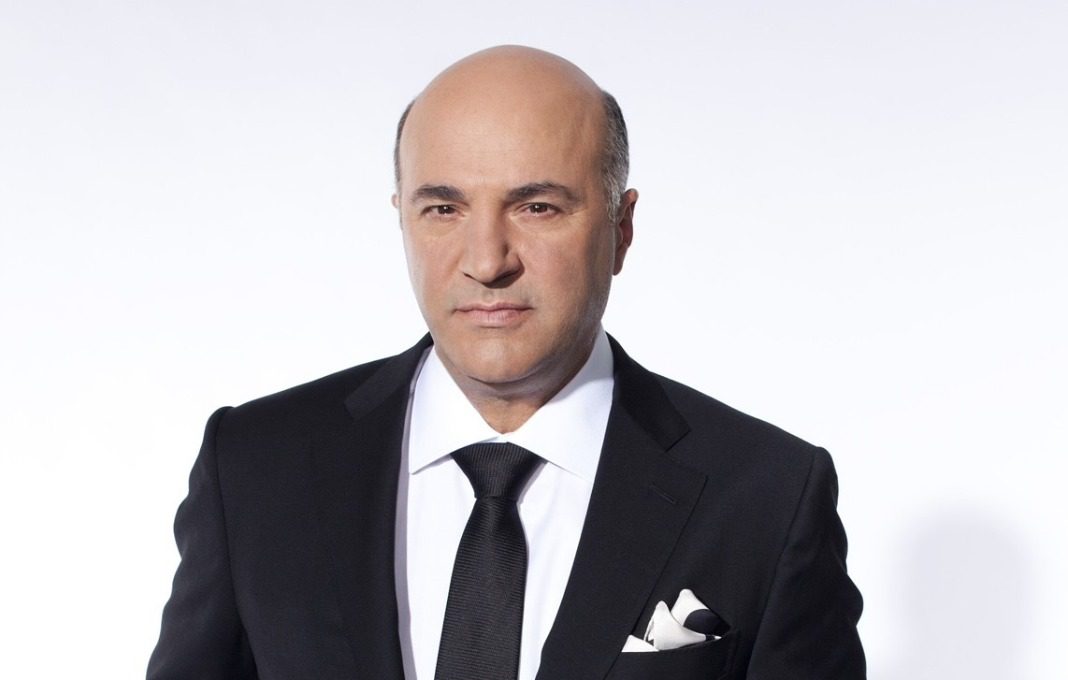Best & Worst States: ‘Mr. Wonderful’ Is Now Endorsing Entire States, Not Just Startups


Over his career as “Mr. Wonderful” on Shark Tank, Kevin O’Leary has invested a reported $8.5 million or more into dozens of startups that have appeared on the long-running TV show gamifying entrepreneurism, including makers of genetic test kits for cats, snack bites made out of dates, online forms for pre-nuptial agreements and sheet de-tanglers for dryers.
Now, O’Leary is placing his investment recommendations on entire states. Lately, North Dakota, Oklahoma, West Virginia and Montana have gained endorsement in his “Competitive States Investment Tour,” and it’s no surprise that some economic-development officials are excited to get O’Leary’s celebrity imprimatur.
“We could probably do a better job of telling our story,” says Hopper Smith, executive director of the Oklahoma Department of Commerce, who cites personal income-tax cuts, declines in workers’-compensation costs, and right-to-work status as big reasons for the state’s recent economic advances. “But if you’ve got someone like Kevin O’Leary telling your story, you’ve got a lot more credibility.”
Oklahoma shines, O’Leary says, with “competitive taxes and streamlined processes for large projects.” The state moved up two spaces in the 2024 Chief Executive rankings, to No. 20. West Virginia, for example, moved up three spots, to No. 34, partly reflecting a determined effort by the state’s economic-development community that has included moving the workers’ comp system to the private sector, which has yielded the nation’s second-lowest rates.
“We had a bad judicial environment, a tough regulatory environment and a tough tax environment,” says Mitch Carmichael, West Virginia’s economic-development head. “Those kinds of things have been eliminated and we have put ourselves on par if not slightly better than contiguous states.”
On the other hand, O’Leary has become increasingly critical of one state that it’s easy for CEOs to dislike from a business-climate perspective: New York.
“While adults aren’t supervising New York,” he says, “no one is going to put real money to work there” to invest in major capital projects, notwithstanding GlobalFoundries’ recently announced plans to spend $11.6 billion to expand chip manufacturing near Malta, New York.
“That state has huge problems: high taxation and punitive policies. It’s probably not going to have an easy time attracting a large amount of capital. Even in the financial-services business where New York has led, a lot of firms are moving their nexus to places like Miami and Texas.”
O’Leary also cites data-center construction. With the accelerating boom in siting of these facilities that, he says, bring an average investment of around $3.6 billion, New York theoretically could be a leader in large part based on having relatively low-cost hydropower energy available upstate.
“But why would you bring $3.6 billion into that environment when you could go to other states that already have proven policies and already have data centers?” O’Leary says. “New York is a flyover state now.”
Broadly, O’Leary says, “It turns out we all made a big mistake in not investing” in heartland states such as the ones he specifically favors. “Post-pandemic, companies can put their headquarters anywhere. You can put employees in a high-tax state, but you don’t have to put any money in the ground. So why award states that are anti-business? They don’t want your business.”
O’Leary always has more than one angle in praising states for their economic-development prowess. When it comes to his endorsement of North Dakota, for instance, the state recently tabbed O’Leary Ventures to manage a $45-million direct-investment program aimed at bolstering economic growth. Its first investment was LandTrust, an online land-sharing market marketplace connecting landowners with enthusiasts who want to borrow their property for hunting, fishing, bird-watching or RV-ing—sort of an Airbnb for the great outdoors.
“My first concern putting my [fund] to work in North Dakota was that we wouldn’t have enough deal flow,” O’Leary says. “That turned out to be completely false. We’ve been inundated with deal flow. People don’t understand how much advancement there is in North Dakota in technology and manufacturing; Microsoft’s second-largest campus is in Fargo. So we’re finding plenty of opportunity to invest in that state.”


0

1:00 - 5:00 pm
Over 70% of Executives Surveyed Agree: Many Strategic Planning Efforts Lack Systematic Approach Tips for Enhancing Your Strategic Planning Process
Executives expressed frustration with their current strategic planning process. Issues include:
Steve Rutan and Denise Harrison have put together an afternoon workshop that will provide the tools you need to address these concerns. They have worked with hundreds of executives to develop a systematic approach that will enable your team to make better decisions during strategic planning. Steve and Denise will walk you through exercises for prioritizing your lists and steps that will reset and reinvigorate your process. This will be a hands-on workshop that will enable you to think about your business as you use the tools that are being presented. If you are ready for a Strategic Planning tune-up, select this workshop in your registration form. The additional fee of $695 will be added to your total.

2:00 - 5:00 pm
Female leaders face the same issues all leaders do, but they often face additional challenges too. In this peer session, we will facilitate a discussion of best practices and how to overcome common barriers to help women leaders be more effective within and outside their organizations.
Limited space available.

10:30 - 5:00 pm
General’s Retreat at Hermitage Golf Course
Sponsored by UBS
General’s Retreat, built in 1986 with architect Gary Roger Baird, has been voted the “Best Golf Course in Nashville” and is a “must play” when visiting the Nashville, Tennessee area. With the beautiful setting along the Cumberland River, golfers of all capabilities will thoroughly enjoy the golf, scenery and hospitality.
The golf outing fee includes transportation to and from the hotel, greens/cart fees, use of practice facilities, and boxed lunch. The bus will leave the hotel at 10:30 am for a noon shotgun start and return to the hotel after the cocktail reception following the completion of the round.